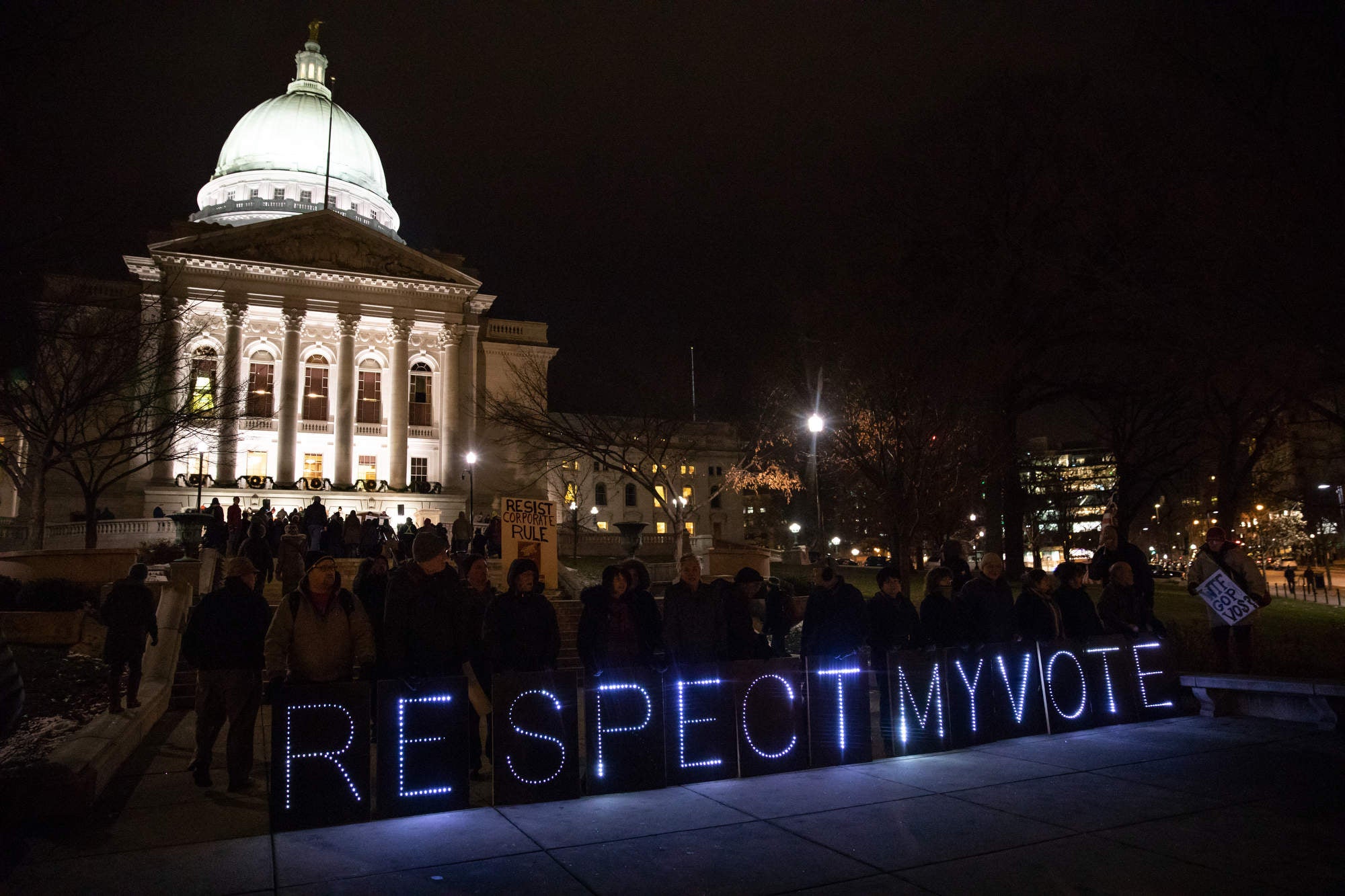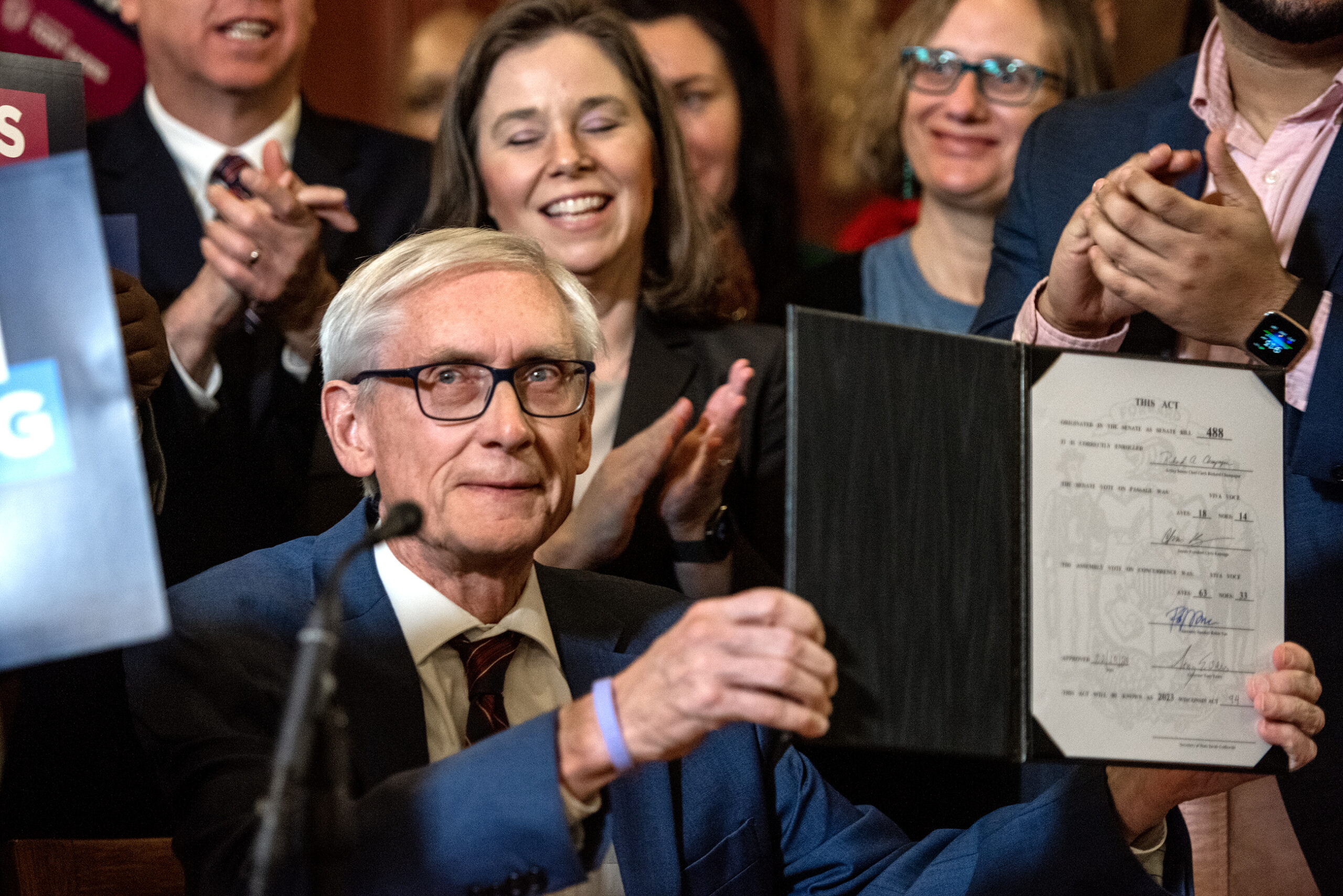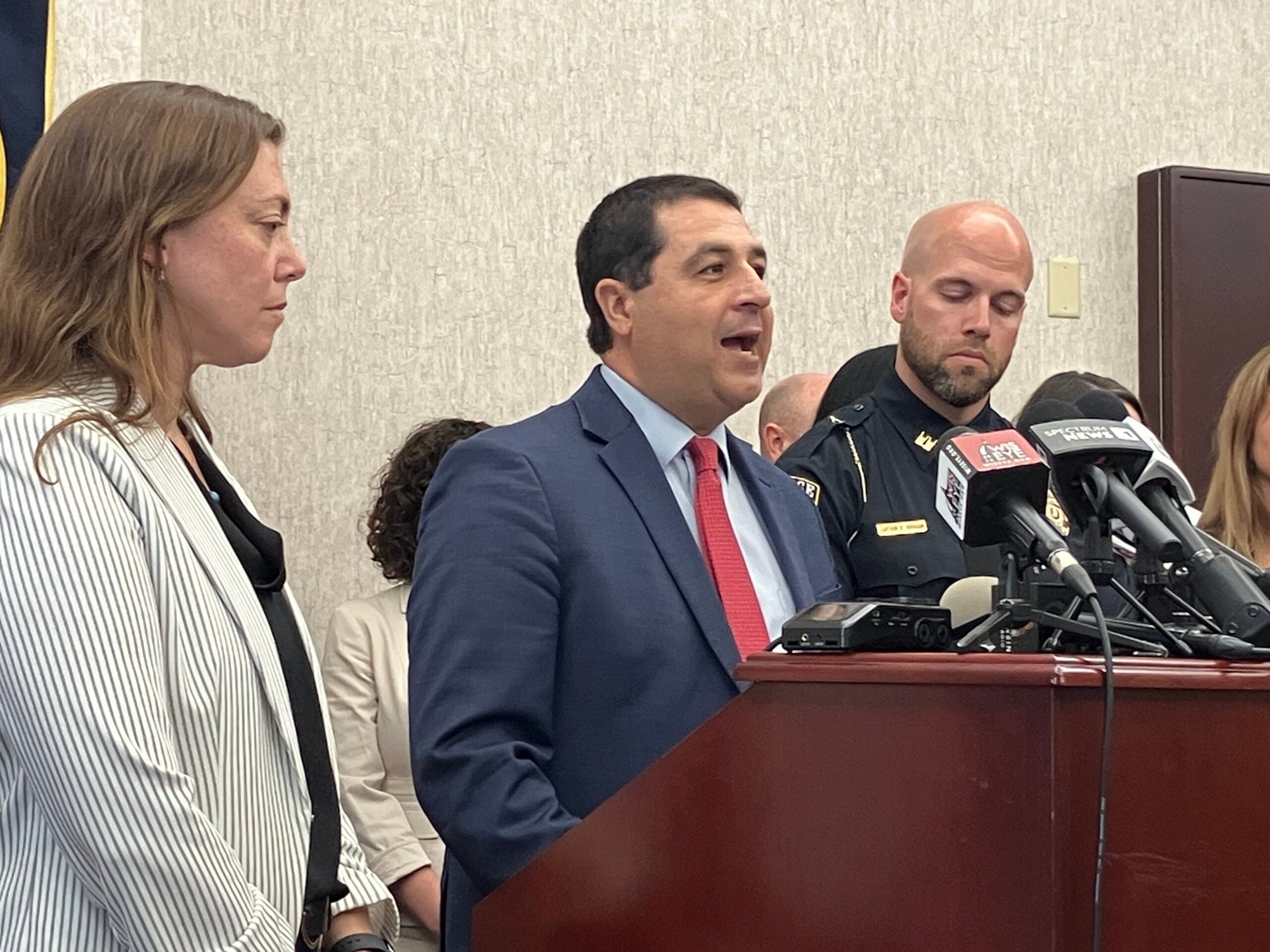The clock is now ticking on Gov. Scott Walker to sign or veto three bills that passed an extraordinary session of the Legislature last week.
Walker formally called for the bills Thursday, according to the office of the Wisconsin Senate Chief Clerk. Walker has six days, not counting Sunday, to sign or veto them, meaning he must act no later than Thursday, Dec. 20.
Walker took the procedural step on the same day he announced the state of Wisconsin would provide consumer products maker Kimberly-Clark Corp. with up to $28 million in state tax credits if the company retains 388 jobs at its Cold Spring plant in the Fox Valley.
News with a little more humanity
WPR’s “Wisconsin Today” newsletter keeps you connected to the state you love without feeling overwhelmed. No paywall. No agenda. No corporate filter.
Walker was able to arrange the agreement through the Wisconsin Economic Development Corp. without the Legislature’s approval, a power Democratic Gov.-elect Tony Evers would lose under one of the bills now on the governor’s desk.
The bills would restrict the powers of Evers and Democratic Attorney General-elect Josh Kaul in a variety of other ways.
For example, Republican lawmakers would gain more appointments on the WEDC board, and the board would initially choose the agency’s CEO — Evers would be able to appoint the agency’s CEO nine months after Sept. 1, 2019. Wisconsin’s liaison for the massive Foxconn project in southeast Wisconsin would also report to the board instead of reporting to the Evers administration.
Another provision would prevent Evers and Kaul from fulfilling their campaign promise to end Wisconsin’s participation in a lawsuit to overturn the Affordable Care Act.
The bills would also prevent Evers from undoing Walker administration waivers involving Medicaid, like one that requires able-bodied childless adults to work in order to receive Badgercare.
They would also restrict early voting in Wisconsin to two weeks before an election, a limitation similar to one struck down by a federal judge in 2016.
Because all of the bills have fiscal effects, Walker could selectively veto the pieces he doesn’t want. Regardless of what happens with these bills, Evers would retain that veto power once he takes office.
While Walker is all but certain to act on the measures one way or another, if he does nothing, they would become law automatically.
© Copyright 2025 by The Associated Press. All rights reserved. This material may not be published, broadcast, rewritten or redistributed.







